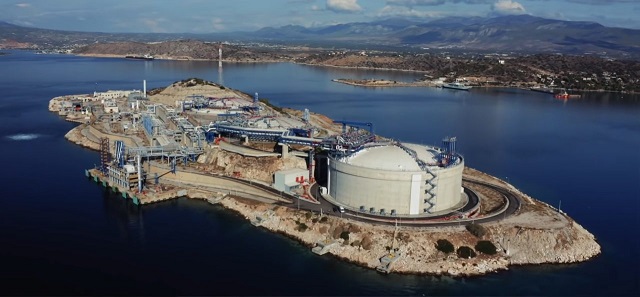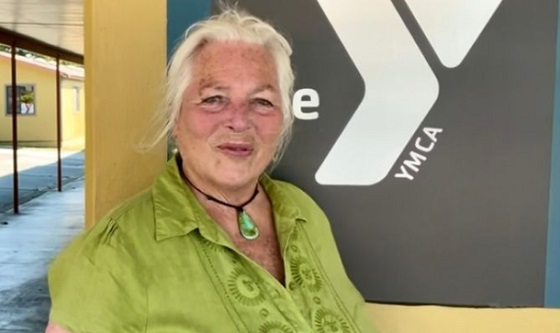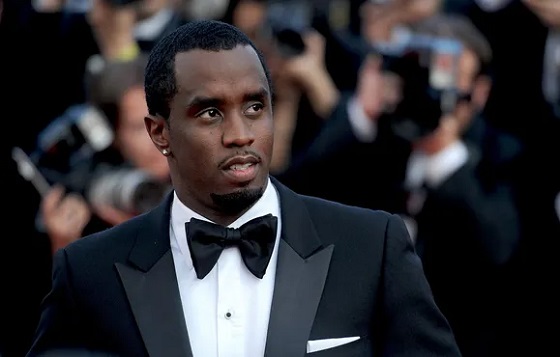Energy
Canada wallows on LNG sidelines, paralyzed by Ottawa’s onerous regulatory system

From the Frontier Centre for Public Policy
By Lee Harding
Mitsotakis said Greece has built a major facility outside the city of Alexandroupolis to process incoming LNG tankers. He said Greece will pump LNG to the rest of Europe and needs more at home as the country abandons coal.
When it comes to fossil fuels, the world wants what Canada’s got. The problem is, Prime Minister Justin Trudeau doesn’t care.
Fresh proof came with the recent visit of Kyriakos Mitsotakis, the first Greek leader to come to Canada in more than 40 years.
According to the office of the Prime Minister Trudeau, Mitsotakis was simply here to march in Montreal’s Greek Independence Day Parade, discuss “shared interests” and cut the ribbon as Greece purchased Canadian-made firefighting planes.
But, during an interview with CTV, Mitsotakis said his country would “of course” like to start importing Canadian liquified natural gas (LNG).
“We are a big entry point for LNG, not just for the Greek market, but also for the Balkans, for Eastern Europe. Theoretically, we could even supply Ukraine,” said Mitsotakis.
“In principle, yes, we are very interested in obtaining LNG at competitive prices.”
Mitsotakis said Greece has built a major facility outside the city of Alexandroupolis to process incoming LNG tankers. He said Greece will pump LNG to the rest of Europe and needs more at home as the country abandons coal.
Much of Europe’s energy has traditionally come from Russia or Middle Eastern autocracies. More than a decade ago, author Ezra Levant made the case for Canada’s “Ethical Oil” as a better alternative. Canada’s status as a democratic state that respects human rights and extracts oil with a minimal environmental footprint is as good as it gets. Mitsotakis, a Harvard-educated investment banker, understands that quite readily today.
“Canada is a country (for) which we share so many values,” said Mitsotakis. “I think we see eye-to-eye on many of the challenges that we face.”
Still, there was no mention of energy exports in Trudeau’s public comments regarding Mitsotakis, nor in official government communications about the visit.
Mitsotakis can take little consolation that his treatment is not unusual, as true as that may be. In the past 18 months, both the Japanese prime minister and the German chancellor returned home without official assurances that Ottawa was eager to offer bulk quantities of Canadian LNG.
Japanese Prime Minister Fumio Kishida came to Canada in January, 2023 making no secret of his “high expectations” to reach an LNG export agreement with Canada.
In August 2022, German Chancellor Olaf Scholz came to Canada hoping to reach an LNG deal. “Canada is our partner of choice,” Scholz said at the time.
Somehow, Trudeau said at a press conference with the German leader that there was no “business case” for LNG exports to Europe. Instead, he took the chancellor to an empty field in Newfoundland that was the chosen site for a future Canadian facility to export carbon-neutral hydrogen.
That will help Germany a little, but not nearly enough. The country turned to Qatar and signed a 15-year LNG export deal.
Canada is currently the world’s fifth largest producer of natural gas. But, as is the case with oil, facilities to sell it overseas are very limited. Canada has no LNG export facilities currently operating. Any LNG exports to Europe would have to go through a US export terminal.
Kitimat, BC will open a major export facility in early 2025, but plans to build an LNG pipeline to ports on the East Coast have fallen apart due to high costs.
On Monday, Alberta Energy Minister Brian Jean said “onerous” regulatory procedures were more to blame.
“With massive natural gas reserves, Canada can no longer wait on the LNG sidelines, burdened by an onerous regulatory system. Our allies and trading partners need us. We must have more LNG export facilities approved and built,” Jean said in a statement.
Jean is right. Canada has scuttled one opportunity after another during the Trudeau era, first by smothering pipeline development in onerous regulations. The Northern Gateway pipeline was the only one the nation banned, citing environmental concerns off the coast of northern B.C., despite the fact that 50 tankers passed the same waters every day with exports from Alaska.
Other proposals, such as the Energy East pipeline, were held up in red tape until its proponents decided the project wasn’t worth it. A 30,000-page application went for not, as did the hope that refineries in the Maritimes could refine Canadian products instead of those from the Middle East.
The trans mountain pipeline was also bound up until the government bought it, after which its progress still went painfully slowly. Years late and six times over-budget at a cost of $34 billion, the “long delayed” pipeline is finally ready for crude deliveries.
Bill C-69, dubbed by former Alberta Premier Jason Kenney as the “No More Pipelines Act”, was declared unconstitutional by the Supreme Court of Canada last fall. The development is welcome but cannot restore lost time.
Canada remains poorly positioned to capitalize on another historic opportunity–the European thirst for oil as it tries to distance itself from Russia. Unfortunately, this problem seems more convenient to Ottawa than not. The Canadian government seems more interested in having zero carbon emissions even if that means zero economy. Too bad that makes zero sense.
Lee Harding is a Research Fellow at the Frontier Centre for Public Policy
Energy
B.C. Residents File Competition Bureau Complaint Against David Suzuki Foundation for Use of False Imagery in Anti-Energy Campaigns

From Energy Now and The Canadian Newswire
A group of eight residents of Northeast British Columbia have filed a formal application for inquiry with Canada’s Competition Bureau, calling for an investigation into the David Suzuki Foundation’s (the Foundation) use of false and misleading imagery in its anti-energy campaigns.
The complaint alleges that the Foundation has repeatedly used a two-decade-old aerial photograph of Wyoming gas wells to falsely depict modern natural gas development in B.C.’s Montney Formation. This area produces roughly half of Canada’s natural gas.
Key Facts:
- The misleading image has been used on the Foundation’s website, social media pages, reports and donation appeals.
- The Foundation has acknowledged the image’s true source (Wyoming) in some contexts but has continued to use it to represent B.C. development.
- The residents claim this materially misleads donors and the public, violating Section 74.01(1) of the Competition Act.
- The complaint is filed under Sections 9 and 10 of the Act, asking the Bureau to investigate and impose remedies including ceasing the conduct, publishing corrective notices, and returning proceeds.
Quote from Deena Del Giusto, Spokesperson:
“This is about fairness and truth. The people of Northeast B.C. are proud of the work they do to produce energy for Canada and the world. They deserve honest debate, not scare tactics and misleading imagery used to raise millions in donations. We’re asking the Competition Bureau to hold the David Suzuki Foundation to the same standard businesses face: tell the truth.”
Background:
Natural gas development in the Montney Formation supports thousands of jobs and fuels economic activity across the region. Accurate public information is vital to informed debate, especially as many Canadians live far from production sites.
SOURCE Deena Del Giusto
Economy
Trump opens door to Iranian oil exports

This article supplied by Troy Media.
U.S. President Donald Trump’s chaotic foreign policy is unravelling years of pressure on Iran and fuelling a surge of Iranian oil into global markets. His recent pivot to allow China to buy Iranian crude, despite previously trying to crush those exports, marks a sharp shift from strategic pressure to transactional diplomacy.
This unpredictability isn’t just confusing allies—it’s transforming global oil flows. One day, Trump vetoes an Israeli plan to assassinate Iran’s supreme leader, Ayatollah Khamenei. Days later, he calls for Iran’s unconditional surrender. After announcing a ceasefire between Iran, Israel and the United States, Trump praises both sides then lashes out at them the next day.
The biggest shock came when Trump posted on Truth Social that “China can now continue to purchase Oil from Iran. Hopefully, they will be purchasing plenty from the U.S., also.” The statement reversed the “maximum pressure” campaign he reinstated in February, which aimed to drive Iran’s oil exports to zero. The campaign reimposes sanctions on Tehran, threatening penalties on any country or company buying Iranian crude,
with the goal of crippling Iran’s economy and nuclear ambitions.
This wasn’t foreign policy—it was deal-making. Trump is brokering calm in the Middle East not for strategy, but to boost American oil sales to China. And in the process, he’s giving Iran room to move.
The effects of this shift in U.S. policy are already visible in trade data. Chinese imports of Iranian crude hit record levels in June. Ship-tracking firm Vortexa reported more than 1.8 million barrels per day imported between June 1 and 20. Kpler data, covering June 1 to 27, showed a 1.46 million bpd average, nearly 500,000 more than in May.
Much of the supply came from discounted May loadings destined for China’s independent refineries—the so-called “teapots”—stocking up ahead of peak summer demand. After hostilities broke out between Iran and Israel on June 12, Iran ramped up exports even further, increasing daily crude shipments by 44 per cent within a week.
Iran is under heavy U.S. sanctions, and its oil is typically sold at a discount, especially to China, the world’s largest oil importer. These discounted barrels undercut other exporters, including U.S. allies and global producers like Canada, reducing global prices and shifting power dynamics in the energy market.
All of this happened with full knowledge of the U.S. administration. Analysts now expect Iranian crude to continue flowing freely, as long as Trump sees strategic or economic value in it—though that position could reverse without warning.
Complicating matters is progress toward a U.S.-China trade deal. Commerce Secretary Howard Lutnick told reporters that an agreement reached in May has now been finalized. China later confirmed the understanding. Trump’s oil concession may be part of that broader détente, but it comes at the cost of any consistent pressure on Iran.
Meanwhile, despite Trump’s claims of obliterating Iran’s nuclear program, early reports suggest U.S. strikes merely delayed Tehran’s capabilities by a few months. The public posture of strength contrasts with a quieter reality: Iranian oil is once again flooding global markets.
With OPEC+ also boosting output monthly, there is no shortage of crude on the horizon. In fact, oversupply may once again define the market—and Trump’s erratic diplomacy is helping drive it.
For Canadian producers, especially in Alberta, the return of cheap Iranian oil can mean downward pressure on global prices and stiffer competition in key markets. And with global energy supply increasingly shaped by impulsive political decisions, Canada’s energy sector remains vulnerable to forces far beyond its borders.
This is the new reality: unpredictability at the top is shaping the oil market more than any cartel or conflict. And for now, Iran is winning.
Toronto-based Rashid Husain Syed is a highly regarded analyst specializing in energy and politics, particularly in the Middle East. In addition to his contributions to local and international newspapers, Rashid frequently lends his expertise as a speaker at global conferences. Organizations such as the Department of Energy in Washington and the International Energy Agency in Paris have sought his insights on global energy matters.
Troy Media empowers Canadian community news outlets by providing independent, insightful analysis and commentary. Our mission is to support local media in helping Canadians stay informed and engaged by delivering reliable content that strengthens community connections and deepens understanding across the country.
-

 International2 days ago
International2 days agoWoman wins settlement after YMCA banned her for complaining about man in girls’ locker room
-

 Banks2 days ago
Banks2 days agoWelcome Back, Wells Fargo!
-

 Alberta1 day ago
Alberta1 day agoAlberta government records $8.3 billion surplus—but the good times may soon end
-

 MxM News1 day ago
MxM News1 day agoDiddy found not guilty of trafficking, faces prison on lesser charge
-

 Bruce Dowbiggin1 day ago
Bruce Dowbiggin1 day agoCanada Day 2025: It’s Time For Boomers To Let The Kids Lead
-

 Also Interesting1 day ago
Also Interesting1 day agoEndorphina Slots: High-Quality Games Now at Zoome Casino Canada
-

 Business1 day ago
Business1 day agoPrairie provinces and Newfoundland and Labrador see largest increases in size of government
-

 Canadian Energy Centre1 day ago
Canadian Energy Centre1 day agoAlberta oil sands legacy tailings down 40 per cent since 2015









